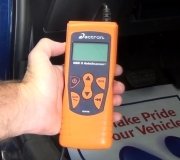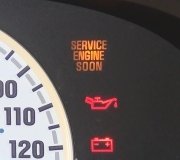Ok, the P0300 is a random and/or multiple cylinder misfire so...
Check for broken or dilapidated vacuum hoses on and around the engine, your car's engine is designed to run on a system that can hold vacuum. Vacuum hoses are typically connected to the engine intake manifold and will supply engine vacuum to various accessories like power brakes. Some cars are designed with a larger vacuum transfer hose like Ford that connects the intake manifold to the IAC (idle air control) motor. A broken or dilapidated vacuum line or air intake boot can cause the engine to lose vacuum which will allow the engine to run rough and die. Inspect all engine and accessory vacuum lines to look for missing, torn or dilapidated lines and replace as needed. Also have a helper rest their foot on the gas pedal just enough to keep the engine running. Check the engine when it is running to listen for any whistling noise coming from the engine that is not usually present. Follow the noise and inspect vacuum lines in that area. Also, when the engine is running it will pull inward a broken or weak piece of the hose to create a larger vacuum leak. Check the integrity of all vacuum hoses at each end of the hose. Typically this is where a vacuum hose fails.
Engine compression is very important for a smooth running engine. An engine depends on an equal compression reading in each cylinder to run smoothly. If poor compression exists in one or more cylinders it can cause a rough idle condition and low engine power output. A compression test of all cylinders is needed to check for engine wear and internal damage. Remove ignition coil connector or ignition system or fuel pump fuse to disable power to the ignition or fuel system to avoid fire. Compare cylinders compression reading, typical compression readings are between 125 p.s.i. and 160 p.s.i. all cylinder readings should be within about 5% of each other. If low compression exists a cylinder malfunction exits and further troubleshooting is required. Possible causes for a low compression condition are: burned intake or exhaust valve, broken piston or piston ring, broken valve spring or a blown head gasket.
The ignition system in your car ignites the fuel inside the engine's combustion chamber at the optimal time in the piston stroke to produce the most power while emitting the least amount of emissions as possible. There are many configurations of ignition systems but all operate on the same principle, create a low energy field and collapse it onto a high energy coil and that transfers the electrical energy into the secondary ignition system, i.e. coil wire, distributor cap and rotor (if equipped) plug wires and finally the spark plug.
Check out this link for more info....
https://www.2carpros.com/first_things/why_does_my_engine_run_rough.htm
.
Friday, November 20th, 2009 AT 9:25 PM




